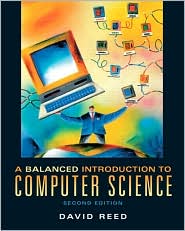Yes.
The U.S. Census Bureau reported that in 2009, over 68% of American households have Internet access at home. While that is awesome, what about the other 32% who need to use materials? That’s a few million people we’re talking about. Many libraries restrict the amount of time you get on a computer. If you can’t get your research done in 30 minutes, sorry bucko. This is why print materials are important. They can be taken home for days, weeks and months at a time – for free. No batteries, no technology needed to view a document. Free.
Ok, so what about research libraries. Most of their patrons are highly educated and have easier access to the Internet. So access is not a major problem. Currency is a major issue. Medical researchers need the newest information so they make the best possible decisions for their patients. You wouldn’t want your doctor using books from 20 years ago would you? So, what do we do with all these outdated books? Do we house them for the rare individual doing historical research? They are few, these historical researchers, but a significant minority and important.
Should we take all the old books and digitize them? The old books would be available online/ in a digital format for historical researchers and we could save money by shutting down the book housing facility. But there’s a small problem. It is not possible in the foreseeable future to digitize every book. It takes massive amounts of man power to digitize a collection. It just isn’t feasible right now. Think about the Google Books project. It’s slow going and they must choose what they think are the most important books – they can’t get everything. If we rely on an initiative like Google Books (as cool as it may be) we will lose information from the past. That’s a little scary.
There are issues even Google can’t get around when it comes to making traditionally print materials available in digital format. That’s copyright. It’s enough to make your head spin. Copyright issues alone are enough to hinder universal online access.
Here's the biggest reason I don’t think digital resources are ready to be the next King of Text. There is as yet no way to guarantee that digital resources will be around next week let alone forever. Preservation issues have haunted the physical book for hundreds of years. We’ve literally had centuries to learn how to preserve paper. But preserving bit streams, those ones and zeros that make up your computer’s memory, how on earth do we save those? It’s not as simple as copy and paste.
Hardware mediums change approximately every 5 years. How likely are you to buy an 8-track, a cassette or a floppy disk? Software is updated constantly. Switching from one hardware/software to another, called migration, is fraught with digital dangers. Documents can become unreadable in part or whole. Eek! Now, obviously companies manage to function with this “acceptable loss” of information. But should we trust all our information to digital repositories with these issues unresolved?
Let’s talk about subscriptions. I subscribe to Better Homes and Gardens. I pay for it, it arrives and I can read it for as long as the pages hold together. Libraries pay huge bucks, thousands of dollars, to subscribe to digital journals they do not get physical copies of. Ok, so what. They don’t want the physical copies because space is an issue. But ownership is an issue. The vendor providing the subscription can go out of business, change its policies or the library can decide it can’t afford the service anymore. All those journals the library paid for go poof! They don’t have a copy anymore. When you buy physical copies you get the text forever (or the life of the paper on which it’s printed). When you buy digital you don’t always get copies so information is lost when a subscription is canceled. This happens. And it’s another reason that digital documents aren’t ready to take over planet Earth.
Let’s talk about subscriptions. I subscribe to Better Homes and Gardens. I pay for it, it arrives and I can read it for as long as the pages hold together. Libraries pay huge bucks, thousands of dollars, to subscribe to digital journals they do not get physical copies of. Ok, so what. They don’t want the physical copies because space is an issue. But ownership is an issue. The vendor providing the subscription can go out of business, change its policies or the library can decide it can’t afford the service anymore. All those journals the library paid for go poof! They don’t have a copy anymore. When you buy physical copies you get the text forever (or the life of the paper on which it’s printed). When you buy digital you don’t always get copies so information is lost when a subscription is canceled. This happens. And it’s another reason that digital documents aren’t ready to take over planet Earth.










